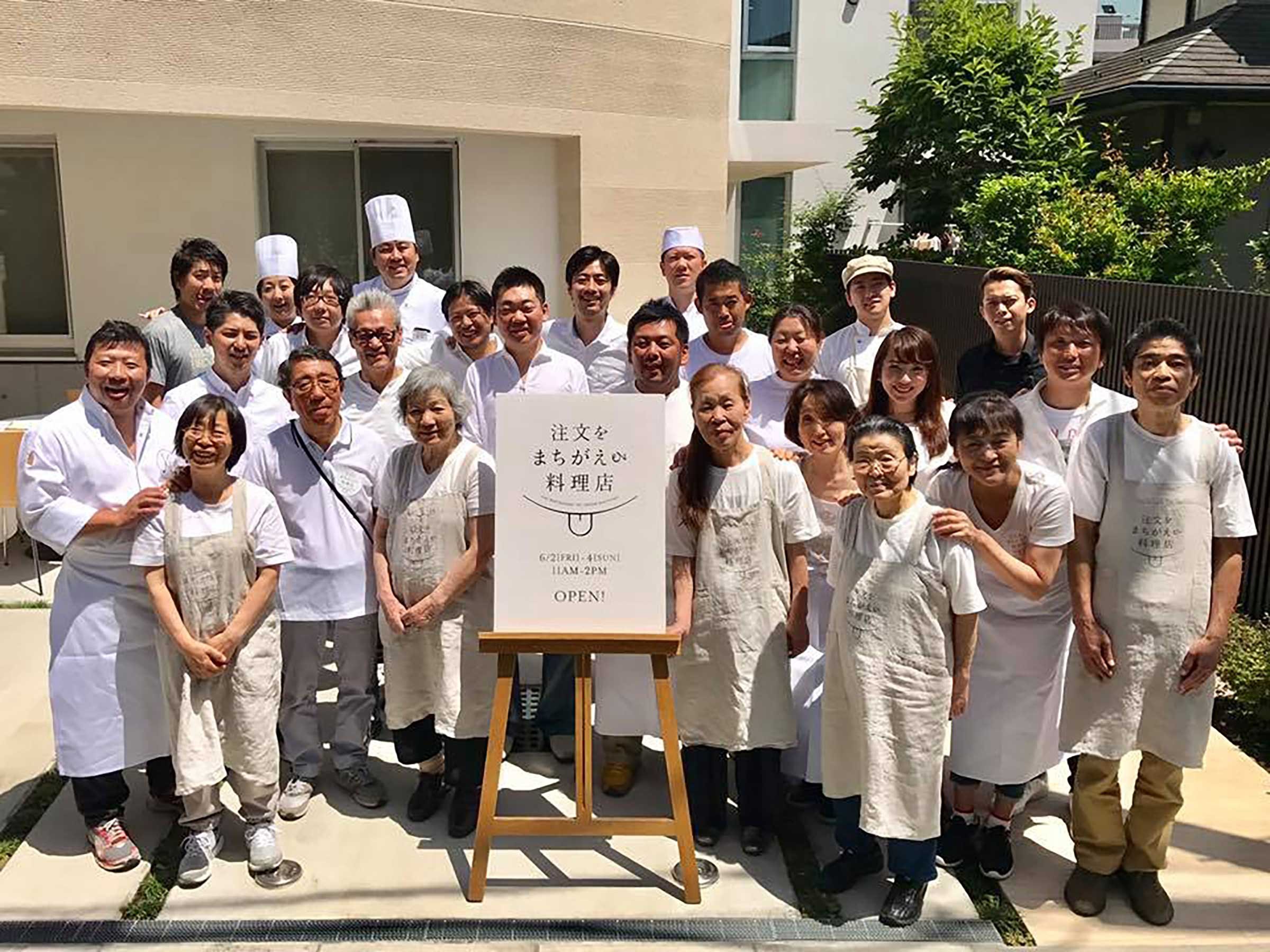The Restaurant of Mistaken Orders

A Japanese Eatery Embraces the Serendipity of Imperfection
by Torrey Douglass
I had a business coach who would periodically remind me that mistakes are simply unavoidable while working on and in one’s business. It’s not whether mistakes are made, but how one responds when they inevitably are, that sheds light on a person’s grace and integrity. As a frequent mistakemaker, I’ve held that advice close for years.
It’s also why I am attracted to the Japanese art of kintsugi, also known as kintsukuroi, the practice of restoring broken things—often ceramics—in a way that highlights and beautifies its legacy of breakage. An example could be a shattered ceramic bowl that’s been reassembled with lacquer dusted with powdered gold (silver or platinum are also common). The shards appear outlined with shimmering ribbons dispersed randomly around the piece, calling attention to the cracks rather than using the more common repair methods that seek to make those cracks invisible. The restored dish has a spontaneous, completely original beauty, and speaks of hardships weathered and lessons learned.
It’s a creative way to roll with the punches, to embrace the fact that mistakes happen. Gracefully accepting the inevitability of errors is a form of protest against our times’ unrelenting pressure to 1) look and be perfect, 2) document and share said perfection, then 3) receive acceptance and approval in return. Of course we all want to do our best, but understanding that we’ll sometimes stumble can bring a sense of lightness and fun to life. This might be one reason why the Restaurant of Mistaken Orders is such a delightful concept, since detachment from perfectionism is one of its essential values, as is acceptance of whatever comes, perfect or not.
The idea for the Restaurant of Mistaken Orders originated when TV producer Shiro Ogun was working for NHK, a Japanese news outlet. One story covered a group home run by Yukio Wada that embraced a unique approach for its residents dealing with dementia, centering their humanity before their diagnosis, and recognizing that people with memory issues can still perform many tasks for themselves and others. At lunch during his visit, Ogun was served a plate of potstickers instead of the hamburger steak he ordered. He was about to protest when he noticed his companions happily eating their food, and realized accepting the situation was a much better strategy under the circumstances.
When health issues forced him to step away from TV producing five years later, Ogun reached out to Wada to see if he was interested in pursuing his unusual restaurant concept. Together they refined the vision—an eating establishment where all the serving staff were individuals with dementia. “We wanted to make a place where, when the customers come, they feel that it looks delicious and fun, and people with dementia just happen to be working there; a place to spontaneously interact with dementia,” Ogun said in an interview with The Big Issue Japan. “We didn’t want to depend on excuses like, ‘We’re doing a good thing, so even if we make mistakes, please forgive them.’ So the chefs perfected their cooking to almost Michelin-star level.”
The launch event was in September of 2017, and 300 people were served over three days. Mistakes were made aplenty—iced coffee arrived at one table instead of soda, one server needed assistance from the guests to manage the oversized pepper grinder, and another delivered food to the table before promptly sitting down to join the group. A video about the launch depicts a server asking which customer ordered the hamburger. “That was me,” says a young man. “Are you sure?” asks the server. “Because I’m not!”—and polite laughter and smiles blossom around the table.
In each instance of confusion or error, diners responded with lighthearted humor and gracious acceptance, which is the whole point of the enterprise. In a video promoting the project, Ogun explains, “Dementia is so widely misunderstood. People believe you can’t do anything for yourself and the condition will often mean complete isolation from society. We want to change society to become more caring and easy-going, so dementia or no dementia, we can live together in harmony.” By all accounts, the launch event was a success, with the restaurant sharing that “37% of our orders were mistaken, but 99% of our customers said they were happy.”
Since the launch, the project has published two books, The Restaurant of Mistaken Orders and How to Create a Restaurant of Mistaken Orders. They’ve held other pop-ups around Japan and won a number of awards, both in Japan and internationally. From the start Ogun hoped the idea would spread around the world, embraced by and adapted for each particular culture and community. So far, similar pop-ups have launched in China, Korea, and the U.K.
The restaurant is not an ongoing operation, but instead an occasional event. It’s an inspired example of creating community, including people of various capacities, and celebrating what’s possible rather than focusing on what’s missing. If we feel shame when we fall short of certain ideals, we miss out on a lot of the joy of life. Better to embrace it and find the beauty. All those cracks can be pretty dazzling when they are filled with gold.
More information can be found at mistakenorders.com/en/home.html
Kintsugi photo photo by JuDPjcutors courtesy of Unsplash. All other images courtesy of Restaurant of Mistaken Orders.



